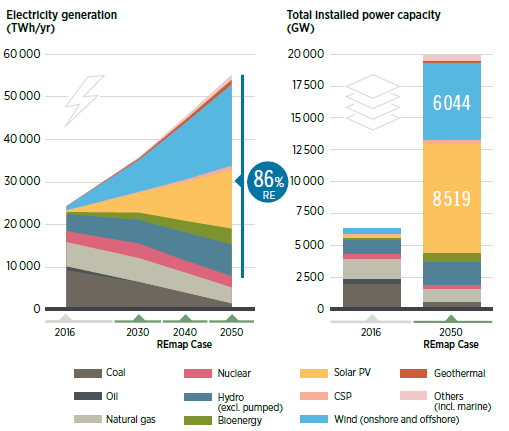Energy Agency (IEA), notes that the use of energy for space cooling is growing faster than for any other type of energy use in buildings, having more than tripled between 1990 and 2016, and that rising demand for space cooling is already putting enormous strain on electricity systems in many countries, while similarly driving up emissions (IEA, 2018d). Therefore, addressing cooling demand is crucial to address emissions in the buildings sector.
Cities and municipalities need to encourage the uptake of renewables in their built environment, too, and also adopt efficient, centralised district systems which can utilise renewable power and store heat for use later when necessary.
The wind and solar energy will dominate the growth of renewable energy generation by 2050. By 2050, solar energy with 8,500 GW installed capacity and wind with 6,000 GW would account for three fifths of global electricity production. Electricity consumption in the end-user sectors will more than double compared to today’s level.
Source: IRENA (2019), Global energy transformation
